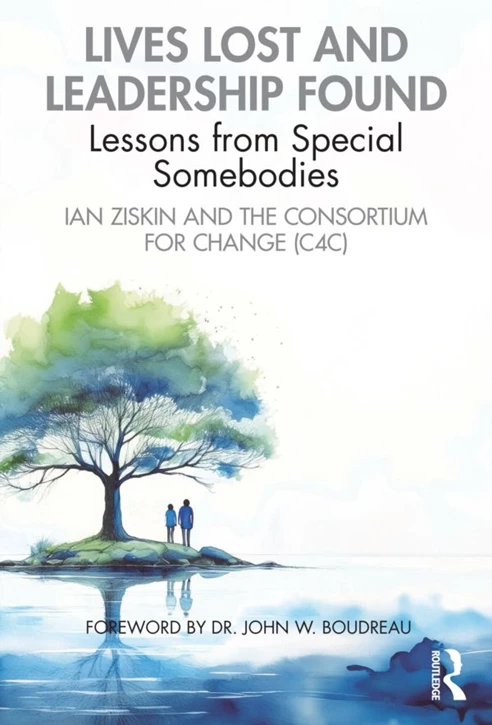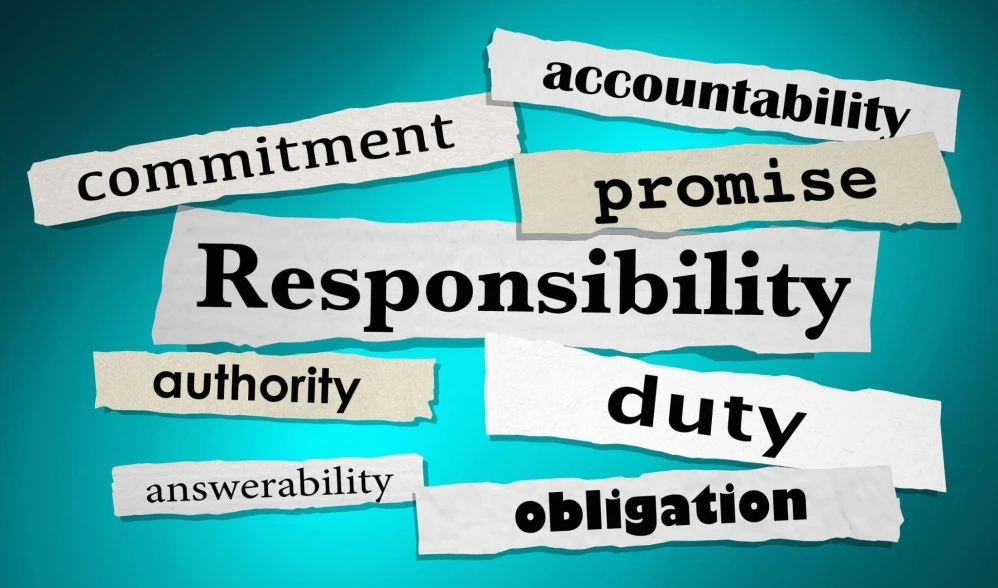Learning from the past and being able to navigate ambiguity and uncertainty is a key skill for employees and leaders. Loss, in particular, has a way of stripping away certainty, forcing leaders and teams to confront the unknown with resilience and clarity. In these moments, the ability to reflect on past experiences and draw meaningful lessons becomes essential for moving forward, but also for navigating the ambiguity and uncertainty that define today’s workplaces.
Loss is universal, yet profoundly personal. It reshapes our reality and tests the limits of our resilience. While we typically associate the grief of losing a loved one as a deeply personal matter, the effects of loss can ripple far beyond personal life to affect how we lead, make decisions, and inspire others. Leaders are not immune to the deep impact of losing someone special. In fact, neuroscience suggests that these experiences can fundamentally reshape the brain, and if approached thoughtfully, can offer lessons that enhance leadership.
"My mother was a model of strength and humility. She never gave up. She knew how to tap her resources, whether it was family, friends, the community, or her college education...She went back to college while my brother and I were in grade school. I remember summers of intense study and closed bedroom doors while he and I were playing with friends, wondering what our mother was up to." – Lori Heffelfinger, excerpt from her essay Resilience Without Regret from the new book Lives Lost And Leadership Found.
The Connection Between Grief and Leadership
Elisabeth Kübler-Ross’s iconic Five Stages of Grief—Denial, Anger, Bargaining, Depression, and Acceptance—was introduced in 1969 to help people navigate personal loss. Yet these stages also echo the emotional turbulence that leaders experience during large-scale organizational change. This is because any type of loss can trigger similar disruptions in our Cognitive-Emotional-Behavioral (CEB) Framework. As Kübler-Ross observed, “You will grieve forever… You will heal, and you will rebuild yourself around the loss you have suffered. You will be whole again, but you will never be the same.” The permanent nature of grief reshapes not only who we are but how we lead.
The Neuroscience of Grief
Neuroscience illuminates the depth of these changes. Mary-Francis O’Connor, author of The Grieving Brain, explains that losing a loved one is a major disruption to the brain itself. “Grief is the cost of loving someone,” she writes. When someone we love passes away, it can feel as though we have lost a piece of ourselves because their presence is literally coded into our neurons. This disruption can result in sadness, anger, guilt, panic, and stress, and have cognitive effects, such as brain fog, memory lapses, and difficulty making decisions. Deborah Davis, Ph.D., expands on this, noting that the brain must reconcile the reality that a loved one is gone with the ingrained expectation that they are still present. The process of updating this “neural map” is exhausting and ongoing, underscoring the profound, adaptive learning that is embedded in grief.
How Loss Shapes Leadership
Loss triggers basic survival instincts, which can significantly shape and influence a leader’s ability to guide others. Lisa M. Shulman, M.D., describes how traumatic loss triggers fight-or-flight responses, affecting our physiological and mental responses. Christopher W.T. Miller, M.D., highlights the conflicting experience of grief with the brain simultaneously acknowledging a loved one’s absence while clinging to their presence. These cognitive dissonances teach us patience, empathy, and adaptability—all qualities essential to effective leadership.
Resilience and Focus in Leadership
David Rock and Jeffrey Schwartz argue that “change is pain” and “focus is power,” and that “organizational change is unexpectedly difficult because it provokes sensations of physiological discomfort.” Leaders who navigate loss successfully learn to direct their attention intentionally, even under emotional duress. By practicing resilience, reflection, and mindfulness, grieving leaders can maintain decision-making capacity and implement change successfully even while facing personal loss.
Historical and Modern Leaders Who Channeled Their Grief
History provides compelling examples of loss shaping leadership. More than 40% of U.S. presidents lost a father before the age of 30, and many lost children, spouses, or siblings. Malcolm Gladwell coined the term “eminent orphans” to describe high-achieving individuals who endured the loss of a parent before adulthood, suggesting that adversity often cultivates grit and empathy.
Modern leaders also illustrate these principles. Sheryl Sandberg, former COO of Facebook, lost her husband unexpectedly and described navigating the “deep fog of grief.” In her co-authored book Option B, she explores how personalization, pervasiveness, and permanence shape the grieving process. Satya Nadella, CEO of Microsoft, experienced the death of his son Zain, who had cerebral palsy, and credits this personal loss with deepening his empathy and shaping Microsoft’s inclusive technology initiatives. CNN anchor Anderson Cooper has spoken openly about losing his father, brother, and mother, framing grief as a path to loving more fully and connecting meaningfully with others. Other notable figures, including Michael Jordan, Prince Harry, Regina King, and Cristiano Ronaldo, demonstrate that grief can transform into purpose, motivation, and authentic leadership.
Transforming Loss into Leadership Growth
Ultimately, loss is unavoidable, but there is much to gain from the experience. By acknowledging the neuroscience behind grief and understanding its impact on cognition and emotion, leaders can transform personal pain into professional growth. In confronting loss, leaders have the opportunity to discover strength they did not know they possessed, to lead with deeper insight, and to inspire others not despite their experiences, but because of them.
Lives Lost and Leadership Found: Lessons from Special Somebodies
Lives Lost and Leadership Found: Lessons from Special Somebodies is a brand-new book that was just released on October 6, 2025. It is a must-read for senior and emerging leaders in HR and non-HR roles, changemakers, coaches, consultants, educators, counselors, and anyone seeking Life and Leadership Lessons Learned from Losing a Special Somebody.
Guided by lead author Ian Ziskin and featuring an essay by Lori Heffelfinger, Lives Lost and Leadership Found explores what loss can teach us about leadership and offers a roadmap for resilience, growth, and leading after loss. In her essay titled Resilience Without Regret, Lori reflects on lessons learned from her mother’s life, including the power of strong relationships and lifelong learning. She reminds us that leadership is modeled, not just taught.
As a reader, you can expect the following from Lives Lost and Leadership Found:
- Broad and diverse perspectives from people who have experienced loss and learned how to be a better person and leader
- Real-life stories and lessons from real personal circumstances packed with emotion, insight, and wisdom
- Practical translation into useful learning and action that will make you a stronger person and a better leader
- Confidence and inspiration that you are not alone—in loss of a loved one or in your role as a leader.
Click here to order your copy now.
To learn more about the authors and the book check out this link:
https://consortium4change.com/special-somebodies/
Warmly,
Lori & James
Lori Heffelfinger & James Jackman
Source:
Ian Ziskin. Lives Lost and Leadership Found. 1st edition. 10/6/2025. Accessed 10/6/2025.







